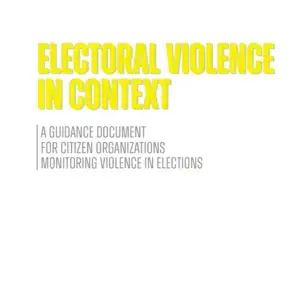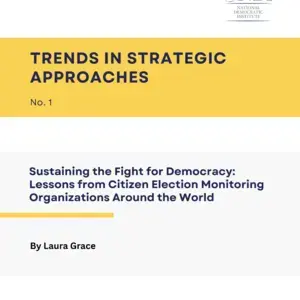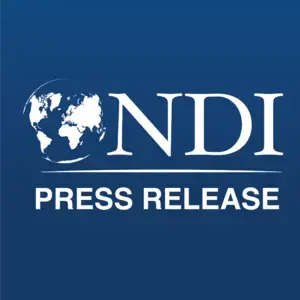The National Democratic Institute (NDI) has released its final report on the Nov. 29, 2009, general elections in Honduras, reiterating the opportunity and responsibility of President Porfirio Lobo and other newly-elected leaders to do everything possible to overcome divisions in the country. NDI’s hope is that the report can provide Hondurans and the international community with an impartial and independent analysis of those elections to assist in the process of national reconciliation.
NDI noted that Hondurans experienced two distinct campaigns after the removal from office of President Manuel Zelaya on June 28, 2009: one was between those supporting or opposing the president’s removal, and the other was between the parties and candidates contesting the elections. The precise impact of the former was difficult to measure but included the withdrawal of 337 candidates and the suspension of some constitutional guarantees for part of the campaign period. A number of international and national human rights groups raised concerns about developments during this period, including alleged arbitrary detentions and excessive use of public force against demonstrations.
“November 29 unfolded in a peaceful and orderly manner,” the NDI report said. However, isolated incidents occurred, such as a violent incident that arose in San Pedro Sula, where security forces dispersed a march against the elections and several participants were wounded or detained.” NDI noted that many aspects of the electoral process were implemented without serious problems, but the Institute also highlighted several technical and logistical problems that should be dealt with for the future.
Regarding voter turnout, NDI’s report noted that the issue became highly politicized as supporters and opponents of ex-President Zelaya “looked to [turnout] as a measure of popular support for their respective positions.” On election night, the Supreme Electoral Tribunal (Tribunal Supremo Electoral, TSE) presented an initial estimate of a 61 percent turnout rate without explaining the derivation of this figure, while domestic observers released a figure that was ultimately comparable to the final official figure of 49.9 percent that was released by the TSE later in December. NDI’s preliminary report recommended that this discrepancy be addressed, but no explanation was forthcoming from the TSE. The final official figure continued the trend of declining turnout seen in Honduras since the 1997 general elections. However, NDI noted persistent inaccuracies in the voter registry, which may include over a million deceased and emigrated persons. These issues call into question the meaning of the turnout percentages.
The final report includes recommendations made in the preliminary report released by NDI’s international assessment mission on Dec. 1, 2009. That report was based on the findings of 22 international experts mobilized by NDI, who were deployed around the country and met with a wide variety of contacts across Honduran society and the political spectrum – including NDI’s Honduran partner, domestic observation consortium Making Democracy (Hagamos Democracia, HD; see HD’s final report).
NDI and its delegation did not draw broad conclusions about the overall process because of the limited, specialized nature of the assessment mission, which was convened on short notice after the signing of the Tegucigalpa/San José Accord that set out a process for resolving the country’s political stalemate. The timeframe did not allow for long-term observers and a pre-election mission, for example, which would be required to meet international election observation standards.
Some of NDI’s key recommendations included:
- The establishment of the Truth Commission envisioned under the Tegucigalpa/San José Accord, including a mandate to examine human rights violations that preceded the elections;
- The conduct of studies on the impact of the crisis on confidence in Honduran institutions as a basis for the implementation of strategies for national reconciliation;
- The initiation of legal reforms to strengthen the technical capacity of the Supreme Electoral Tribunal (Tribunal Supremo Electoral, TSE) and reduce the institutional role of the armed forces in the electoral process;
- The conduct of a voter registry audit to determine the registry’s accuracy and determine strategies for its improvement before the next elections;
- The reinforcement of the TSE’s process for selection, training and accrediting polling station staff;
- The promotion of political parties’ adaptation to the changes in Honduran society; and
- The continued strengthening of Honduran domestic election observation initiatives.
The Institute has worked in Honduras since 2008, assisting domestic election monitors in observing the 2008 primary elections and the 2009 general elections by providing technical assistance in international best practices for election observation.
The assessment mission was funded by a grant from the United States Agency for International Development.




